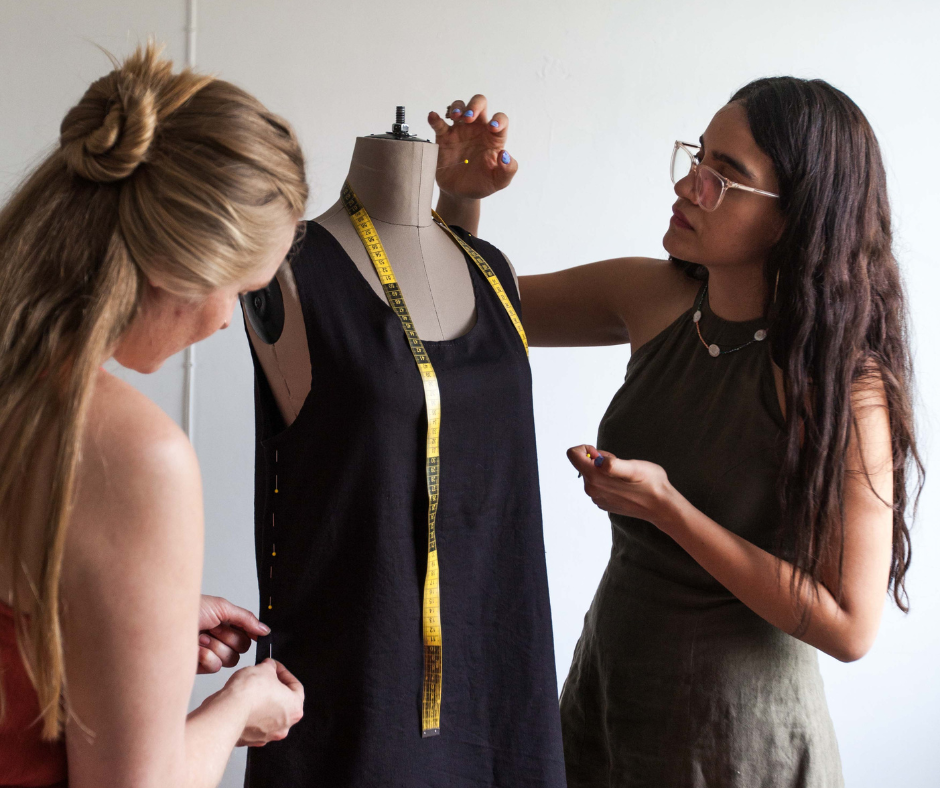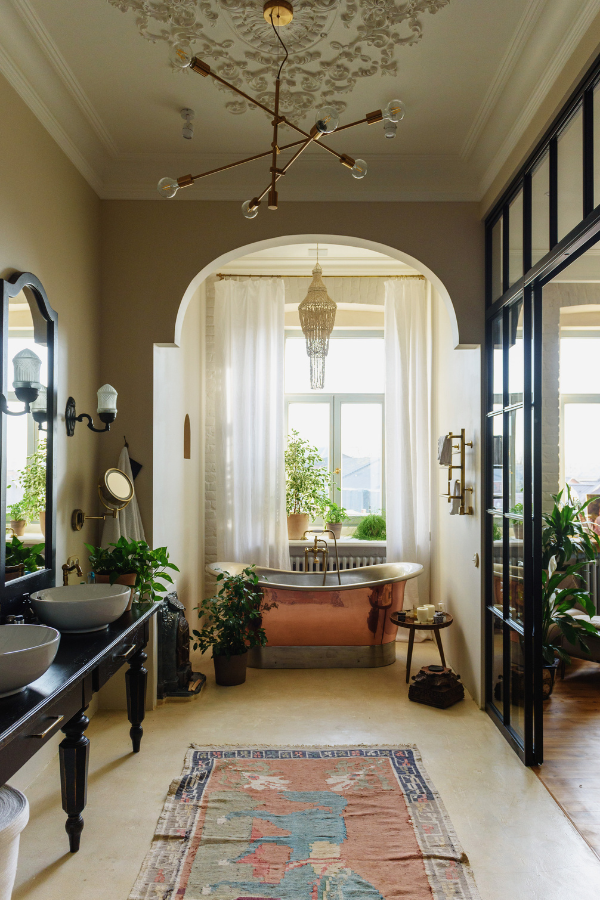

Creative Careers That Pay Well—Even If You’re Not Your Own Boss
Summary
Reflection Questions
Journal Prompt
Finding a fulfilling and well-paying career that allows for creative expression can be challenging, especially if you are not yet ready to start your own business. To help you in your job search, we have compiled detailed descriptions of twenty-two creative careers that offer reasonable salaries—even when working under an employer. These roles span various industries and their descriptions include essential information on necessary education, key skills, daily tasks, work environments, and potential career growth. We also highlight what creative women might find appealing about each job, along with average salary information based on current market research. Whether you’re passionate about design, media, technology, or business, this guide will provide you with valuable insights into thriving in a creative career. Read on to learn all about creative careers that pay well in the U.S.!
22 Creative Jobs That Pay Well in the United States


We hope the following descriptions aid you in your job search! Our team has detailed the essential skills and education needed for these roles—plus info about what creative women might like about the job, work environments, daily tasks, career trajectory, and potential for growth in each industry. For each of the twenty-two creative roles outlined below, we have also included rough salary information.
Bear in mind that the salaries listed below for each creative job are based on general market research and industry standards as of the latest available data. They are derived from sources like the U.S. Bureau of Labor Statistics, industry reports, job market analysis websites like Glassdoor and Payscale, and salary surveys from professional organizations relevant to each field.
For an accurate and up-to-date reference, it is always best to consult specific salary surveys, professional associations, and authoritative sources like the Bureau of Labor Statistics or reputable job market analysis websites.
Art Directors


Average Salary (US): $95,000
Average Salary (Big Cities): $110,000
Art directors typically need a bachelor’s degree in art, design, graphic design, or a related field. Creative women may find this role appealing due to the high level of creativity involved in overseeing the visual aspects of projects, from advertising campaigns to film productions. Art directors often work in advertising agencies, publishing companies, and the entertainment industry.
Creative skills required by this role include strong leadership, a keen eye for detail, proficiency in design software, and excellent communication. Daily tasks involve conceptualizing and executing visual styles, managing design teams, and ensuring visual consistency across all media. Career progression can lead to senior art director or creative director roles. The potential for growth is strong, especially with the increasing demand for digital content and visual storytelling.
Creative Directors
Average Salary (US): $120,000
Average Salary (Big Cities): $140,000
Creative directors usually have a bachelor’s degree in art, design, marketing, or a related field, coupled with extensive experience in the creative industry. This creative career is ideal for women who enjoy leading teams, developing innovative concepts, and setting the creative vision for brands and projects. Work environments include advertising agencies, media companies, and large corporations.
Key skills are strategic thinking, leadership, project management, a deep understanding of visual and brand identity, and excellent communication skills. Daily tasks involve overseeing creative processes, managing creative teams, liaising with clients, and ensuring the final output aligns with the brand’s vision. Career trajectory can advance to executive roles such as Chief Creative Officer. The industry shows strong growth potential, driven by the continuous need for creative direction in marketing and media.
Graphic Designers


Average Salary (US): $55,000
Average Salary (Big Cities): $65,000
Graphic designers typically need a bachelor’s degree in graphic design or a related field. Creative women may find a career as a graphic designer fulfilling due to the opportunity to express creativity through visual content creation. Work environments range from design firms and advertising agencies to corporate marketing departments and freelance settings.
Essential skills include proficiency in design software (like Adobe Creative Suite), creativity, attention to detail, and strong communication abilities. Daily tasks involve creating logos, advertisements, website layouts, and other visual content. Career progression can lead to senior designer, art director, or creative director positions. Some might also consider pursuing a career as a digital marketing manager as there is much overlap in responsibilities and skills. The potential for growth in this field remains robust, with an increasing demand for digital and interactive design solutions across various industries.
Landscape Architects


Average Salary (US): $70,000
Average Salary (Big Cities): $80,000
Landscape architects typically require a bachelor’s degree in landscape architecture and a state license to practice. Creative women will appreciate the blend of artistic design with environmental stewardship, as this role involves creating functional and aesthetically pleasing outdoor spaces. Work environments include architectural firms, landscape design companies, and government agencies.
Key skills include creativity, technical proficiency in design software, environmental awareness, and project management. Daily tasks involve site analysis, design planning, creating renderings, and overseeing project implementation. Career progression can lead to senior landscape architect or project manager roles. The industry has solid growth potential due to increasing demand for sustainable and green urban spaces.
UX/UI Designers
Average Salary (US): $85,000
Average Salary (Big Cities): $100,000
UI and UX designers typically hold a bachelor’s degree in graphic design, computer science, or a related field. Creative women will find this career appealing due to the focus on creating user-friendly and aesthetically pleasing digital interfaces. Work environments include tech companies, design agencies, and startups.
Key skills involve proficiency in design and prototyping software, web development, crafting mobile apps, user research, and an understanding of human-computer interaction. Daily tasks include conducting user research, creating wireframes and prototypes, designing interface elements, and collaborating with developers. Career progression can lead to senior UX/UI designer, product designer, or design leadership roles. The industry’s growth potential is high, driven by the expanding need for effective digital products and user experiences.
Interior Designers


Average Salary (US): $60,000
Average Salary (Big Cities): $75,000
Interior designers generally require a bachelor’s degree in interior design or a related field, and sometimes certification or licensing. Creative women will enjoy the opportunity to transform spaces to reflect personal or brand aesthetics while optimizing functionality. Work environments include design firms, architectural companies, and self-employment.
Key skills include creativity, spatial awareness, proficiency in design software, and project management. Daily tasks involve meeting with clients, developing design concepts, selecting materials and furnishings, and overseeing project implementation. Career progression can lead to senior designer or project manager roles. The industry shows steady growth potential, driven by ongoing demand for residential and commercial interior design.
Fashion Designers


Average Salary (US): $65,000
Average Salary (Big Cities): $80,000
Fashion designers typically need a bachelor’s degree in fashion design or a related field. Creative women will find this career appealing due to the opportunity to express creativity through clothing and accessory design. Work environments include fashion houses, retail companies, and self-employment.
Essential skills involve creativity, knowledge of textiles and materials, sewing and drawing abilities, and trend forecasting. Daily tasks include sketching designs, selecting fabrics, creating prototypes, and overseeing production. Career progression can lead to senior designer, creative director, or brand ownership roles. The industry’s growth potential is moderate, with constant demand for new and innovative fashion designs.
Animators
Average Salary (US): $75,000
Average Salary (Big Cities): $90,000
Animators typically require a bachelor’s degree in animation, graphic design, or a related field. Creative women will enjoy the opportunity to bring characters and stories to life through visual effects and animations. Work environments include film studios, game development companies, and advertising agencies.
Key skills include creativity, proficiency in animation software, storytelling, and attention to detail. Daily tasks involve creating storyboards, developing animations, collaborating with other artists and directors, and refining animations based on feedback. Career progression can lead to senior animator, animation director, or visual effects supervisor roles. The industry’s growth potential is strong, particularly with the increasing demand for animated content in entertainment and media.
Fuel your creative fire & be a part of a supportive community that values how you love to live.
subscribe to our newsletter
Marketing Managers
Average Salary (US): $135,000
Average Salary (Big Cities): $150,000
Marketing managers typically need a bachelor’s degree in marketing, business, or a related field, and often an MBA. Creative women will enjoy the strategic and innovative aspects of developing marketing campaigns and branding strategies. Work environments include corporate offices, marketing agencies, and media companies.
Essential skills include strategic thinking, creativity, leadership, and excellent communication. Daily tasks involve market research, planning and executing marketing campaigns, managing budgets, and collaborating with sales and creative teams. Career trajectory can advance to senior marketing manager, director of marketing, or chief marketing officer roles. The industry’s growth potential remains robust, driven by the continuous evolution of digital marketing and the need for strong brand presence.
Industrial Designers


Average Salary (US): $70,000
Average Salary (Big Cities): $85,000
Industrial designers generally require a bachelor’s degree in industrial design, engineering, or a related field. Creative women will appreciate the blend of artistry and practicality in designing products that are both functional and aesthetically pleasing. Work environments include manufacturing companies, design firms, and corporate design departments.
Key skills involve creativity, technical proficiency in design software, problem-solving, and knowledge of materials and manufacturing processes. Daily tasks include creating sketches, developing prototypes, conducting usability testing, and collaborating with engineers and marketers. Career progression can lead to senior designer, design manager, or product development manager roles. The industry’s growth potential is steady, with ongoing demand for innovative and user-friendly products.
Multimedia Artists
Average Salary (US): $65,000
Average Salary (Big Cities): $75,000
Multimedia artists may also enjoy high paying creative jobs. They typically need a bachelor’s degree in animation, digital arts, or a related field. Creative women will enjoy the opportunity to create visual effects and animations for various media, including movies, video games, and advertising. Work environments include film studios, game development companies, and multimedia design firms. Essential skills include creativity, proficiency in multimedia software, storytelling, and attention to detail.
Daily tasks involve creating storyboards, developing animations, refining visual effects, and collaborating with other artists and directors. Career trajectory can lead to senior multimedia artist, animation director, or visual effects supervisor roles. The industry’s growth potential is strong, particularly with the increasing demand for high-quality visual content across various media platforms.
Architects


Average Salary (US): $80,000
Average Salary (Big Cities): $95,000
Architects typically require a bachelor’s or master’s degree in architecture and must be licensed to practice. Creative women will appreciate the opportunity to design buildings and structures that are both functional and aesthetically pleasing. Work environments include architectural firms, construction companies, and government agencies.
Key skills involve creativity, technical proficiency in design software, project management, and an understanding of building codes and regulations. Daily tasks include meeting with clients, developing design plans, creating detailed drawings, and overseeing construction projects. Career progression can lead to senior architect, project manager, or partner roles in architectural firms. The industry’s growth potential is steady, driven by ongoing demand for innovative and sustainable building designs.
Game Designers
Average Salary (US): $85,000
Average Salary (Big Cities): $100,000
Game designers typically need a bachelor’s degree in game design, computer science, or a related field. Creative women will enjoy the opportunity to create engaging and interactive gaming experiences. Work environments include game development studios, software companies, and entertainment firms. Essential skills involve creativity, storytelling, technical proficiency in game development software, and an understanding of user experience.
Daily tasks include conceptualizing game ideas, developing storylines and characters, creating game mechanics, and collaborating with developers and artists. Career trajectory can advance to senior game designer, lead designer, or creative director roles. The industry’s growth potential is high, driven by the expanding gaming market and demand for innovative game experiences.
Event Planners


Average Salary (US): $50,000
Average Salary (Big Cities): $60,000
Event planners generally need a bachelor’s degree in hospitality management, public relations, or a related field. Creative women will enjoy the dynamic and varied nature of planning and executing events, from weddings and corporate functions to large-scale conferences. Work environments include event planning firms, corporate settings, and the hospitality industry.
Essential skills include organization, attention to detail, creativity, and excellent interpersonal communication. Daily tasks involve coordinating logistics, managing budgets, liaising with clients and vendors, and ensuring events run smoothly. Career progression can lead to senior event planner or event management roles. The industry shows growth potential, particularly as live events and gatherings continue to be a significant aspect of corporate and social life.
Set Designers
Average Salary (US): $60,000
Average Salary (Big Cities): $70,000
Set designers generally require a bachelor’s degree in theater design, art, or a related field. Creative women will enjoy designing and constructing sets for theater productions, television shows, and films. Work environments include theaters, film studios, and television production companies. Key skills involve creativity, spatial awareness, technical proficiency in design software, and an understanding of construction techniques.
Daily tasks include meeting with directors, developing design concepts, creating detailed drawings, and overseeing the construction of sets. Career progression can lead to senior set designer, production designer, or art director roles. The industry’s growth potential is moderate, with consistent demand for skilled set designers in the entertainment industry.
Photographers


Average Salary (US): $42,000
Average Salary (Big Cities): $50,000
Photographers typically need a bachelor’s degree in photography or a related field, although many are self-taught. Creative women will enjoy capturing images that tell stories or convey emotions. Work environments include freelance, media companies, advertising agencies, and corporate settings. Essential skills involve creativity, technical proficiency with cameras and editing software, attention to detail, and an eye for composition.
Daily tasks include planning shoots, taking photographs, editing images, and collaborating with clients or creative teams. Career progression can lead to senior photographer, photo editor, or creative director roles. The industry’s growth potential is steady, particularly with the ongoing demand for visual content in media and advertising.
Film Editors
Average Salary (US): $60,000
Average Salary (Big Cities): $75,000
Film editors typically require a bachelor’s degree in film production, media studies, or a related field. Creative women will enjoy piecing together footage to create compelling narratives in films, TV shows, and online content. Work environments include film studios, television networks, and media production companies. Key skills involve creativity, technical proficiency in editing software, storytelling, and attention to detail.
Daily tasks include reviewing footage, cutting and arranging scenes, adding effects and sound, and collaborating with directors and producers. Career progression can lead to senior editor, post-production supervisor, or director roles. The industry’s growth potential is strong, with the continuous production of film and digital content driving demand for skilled editors.
Public Relations Specialists
Average Salary (US): $62,000
Average Salary (Big Cities): $75,000
Public relations specialists generally require a bachelor’s degree in public relations, communications, or a related field. Creative women will enjoy crafting and managing the public image of clients or organizations. Work environments include PR firms, corporate communications departments, and government agencies. Essential skills involve creativity, strong writing and communication abilities, strategic thinking, and media relations.
Daily tasks include writing press releases, developing media strategies, managing social media, and coordinating events. Career progression can lead to senior PR specialist, PR manager, or communications director roles. The industry’s growth potential is robust, driven by the need for effective communication and brand management in a digital age.
Food Stylists


Average Salary (US): $50,000
Average Salary (Big Cities): $60,000
Food stylists typically need a degree in culinary arts, food science, or a related field, along with experience in the culinary industry. Creative women will enjoy the artistic challenge of making food look appealing for photography and film. Work environments include advertising agencies, culinary magazines, and food production companies.
Key skills involve creativity, an eye for detail, knowledge of culinary techniques, and an understanding of visual composition. Daily tasks include planning food presentations, preparing dishes, arranging food for shoots, and collaborating with photographers and directors. Career progression can lead to senior food stylist or food editorial roles. The industry’s growth potential is steady, with ongoing demand for visually appealing food content in media and advertising.
Property Stagers
Average Salary (US): $55,000
Average Salary (Big Cities): $65,000
Property stagers generally require a background in interior design or real estate, often with a certification in home staging. Creative women will enjoy transforming spaces to enhance their appeal to potential buyers. Work environments include real estate agencies, staging companies, and self-employment. Essential skills involve creativity, an eye for design, knowledge of market trends, and strong organizational abilities.
Daily tasks include assessing properties, developing staging plans, selecting and arranging furnishings, and coordinating with real estate agents. Career progression can lead to senior stager, staging manager, or design consultant roles. The industry’s growth potential is strong, especially in competitive real estate markets where staging can significantly impact sales.
Data Engineers


Average Salary (US): $112,000
Average Salary (Big Cities): $130,000
Data engineers typically need a bachelor’s degree in computer science, engineering, or a related field, often with advanced certifications. Creative women will enjoy the problem-solving and innovative aspects of designing data systems that support decision-making. Work environments include tech companies, financial institutions, and various other industries.
Key skills involve proficiency in programming languages, database management, data modeling, and analytical thinking. Daily tasks include designing and building data pipelines, managing data storage, optimizing data flows, and collaborating with data scientists and analysts. Career progression can lead to senior data engineer, data architect, or chief data officer roles. The industry’s growth potential is high, driven by the increasing importance of data in business and technology.
Business Development Managers


Average Salary (US): $105,000
Average Salary (Big Cities): $120,000
Business development managers typically need a bachelor’s degree in business, marketing, or a related field, with many holding an MBA. Creative women will appreciate the opportunity to strategize and identify new business opportunities, fostering growth and expanding market reach. Work environments include corporate offices, tech companies, and startups. Essential skills include strategic thinking, sales acumen, excellent communication, and negotiation abilities.
Daily tasks involve researching market trends, developing business strategies, building and maintaining client relationships, negotiating contracts, and collaborating with sales and marketing teams. Career trajectory can advance to senior business development manager, director of business development, or vice president of business development roles. The industry’s growth potential is robust, driven by the constant need for businesses to expand and innovate to stay competitive in the market.
Final Thoughts: Tips for Finding the Right Role
Choosing the right creative career requires self-reflection, research, and networking. Start by identifying your passions and strengths, considering which activities make you feel most fulfilled and energized. Research various industries and roles to understand the required skills and typical work environments, leveraging resources like industry reports and job market analysis websites. Networking is crucial—connect with professionals in your desired field through social media, industry events, and informational interviews to gain insights and advice.
Additionally, consider internships or volunteer opportunities to gain hands-on experience and determine if a role is the right fit for you. Finally, stay adaptable and open to new opportunities, as the creative industry is ever-evolving, offering numerous paths to a rewarding and well-paying career.
We know that you will all evolve into the creative professionals you are meant to be!








